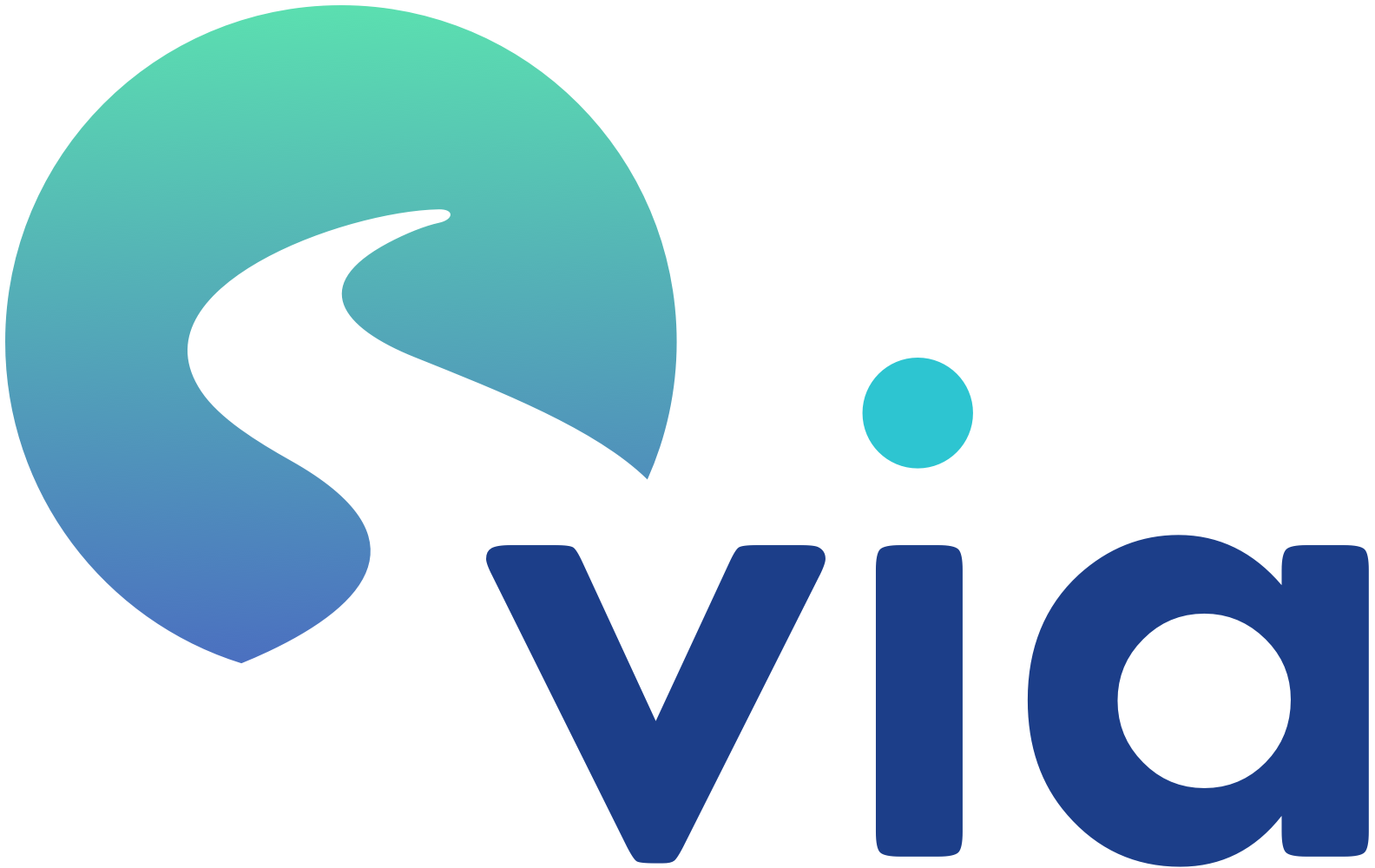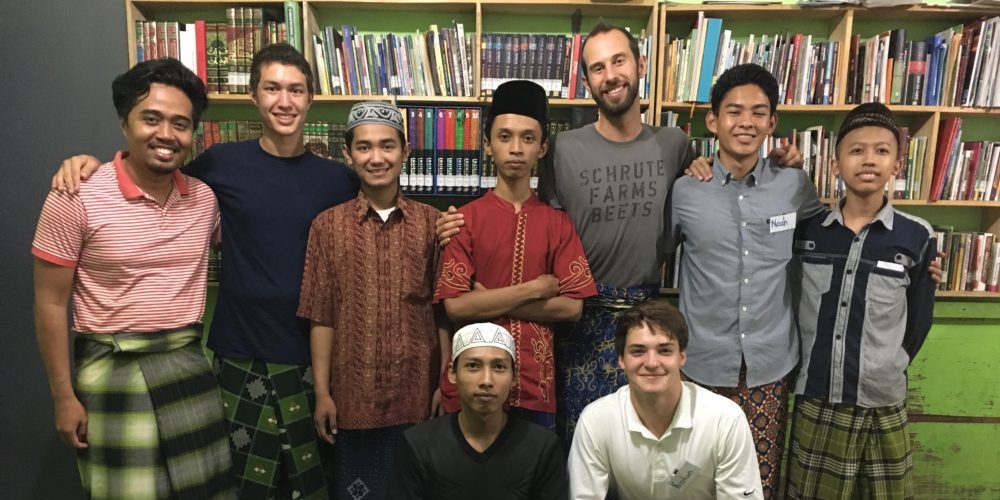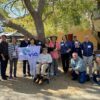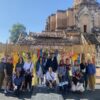This summer, several of VIA’s summer programs in Asia were led by PhD students. Check out some interviews and profiles of our staff scholars.
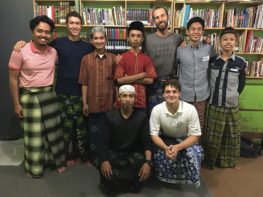 Alex Cromwell, Co-Director for the Indonesia-US Youth Leadership Program
Alex Cromwell, Co-Director for the Indonesia-US Youth Leadership Program
What was your summer role with VIA?
I served as the Co-Director for the Indonesia-US Youth Leadership Program, a program administered by George Mason University and VIA and funded by the Department of State. This is my third year working on the program with VIA.
How does your PhD program connect with running experiential earning programs?
My PhD program is focused on conflict resolution and I study the impact of peace education in international conflict contexts. In my program I am seeking to understand how field-based peace education programs create transformative experiences for participants across lines of difference that make them more understanding towards other groups, and how this influences the actions they take in their community for cultivating peace. So there is a direct connection between what I study and the work that I do on the program.
What was one highlight of your summer?
The first occurred when we took our nine American participants to spend 2 nights at an Islamic boarding school. Although many of the students at the school were still working on their English ability, we were still able to connect with each other through fasting together for the last day of Ramadan, praying together, and celebrating Eid with them late into the night. Our participants shared that they really came to understand the humanness of all people around them through this experience. Even though they went into it thinking that they did not have stereotypes about Muslims, they were still surprised to learn that the students at the Islamic Boarding school were just like them; they had the same problems that teenagers face all over the world, boy and girl drama, too much homework, and challenges dealing with parents.
The second experience was in the United States, when we took our Indonesian group to the 9/11 memorial museum. The following day, we had the opportunity to meet with Project Common Bond, a program run by Tuesday’s children that brings together youth who have lost a family member through terrorism. We broke into small groups and some of our Muslim participants had the opportunity to hear from students who had lost a parent in 9/11, who shared that they did not blame Muslims for the loss of their parents. This was a very powerful experience for our participants.
What do you hope to do after your PhD program?
After my PhD program, I hope to continue working with youth across lines of difference and facilitating peace education programs. I have been lucky enough to secure a faculty position at American University, so I hope to keep teaching there, conduct research on peace education, experiential learning, and intercultural competence, and do my best to make a positive impact in the world around me.
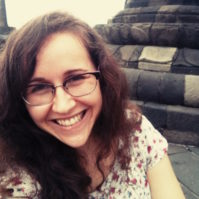 Izzy Rhoads – Indonesia Academic Programs Director and VIA Myanmar 2010 Fellow
Izzy Rhoads – Indonesia Academic Programs Director and VIA Myanmar 2010 Fellow
What was your summer role with VIA?
Indonesia Academic Programs Director – I led four summer programs in Indonesia for participants from high school through PhD level. Two programs were credit granting through George Mason University’s School for Conflict Analysis and Resolution, one on Qualitative Research Methods for Master’s and Phd students and another on Gender for undergraduate and graduate students; a two-month internship program for undergraduate students; and the Indonesia-US Youth Leadership Program partnering with George Mason University and sponsored by the US Department of State.
How does your PhD program connect with running experiential earning programs?
My PhD program is in Law, but I’m not a qualified lawyer, which means unlike most PhD programs I can’t teach in my own department (unless I were to quickly study up on torts or EU law or something similarly unrelated to anything I do). Teaching experiential learning programs in Southeast Asia allows me to think about curricular design and also to focus on things I care about, particularly civil society in Southeast Asia.
What was one highlight of your summer?
Learning about the history of Prambanan Temple and the Ramayana story from a gendered perspective with the GMU Gender course, led by our partner Jaladwara. We explored the temple and read the reliefs depicting the Ramayana epic from a gendered Javanese perspective which was a whole new way of looking at a temple I’ve been to dozens of times.
What do you hope to do after your PhD program?
I’m in my final year so this is a question I get a lot right now… There are only two things that I know for sure – I’ll continue in experiential education and I’ll definitely remain involved in Southeast Asia.
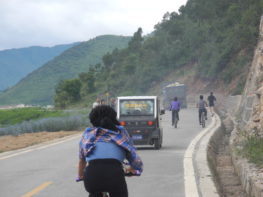 Samantha White, Stanford-Duke Student Athlete Environmental Leadership Program Co-Director
Samantha White, Stanford-Duke Student Athlete Environmental Leadership Program Co-Director
This summer I had the opportunity to work as a co-director on the Stanford-Duke Student Athlete program in Shangri-La, China. The program provided an opportunity for student-athletes to participate in service learning projects is a way to promote civic engagement. Through planning and implementing a sports and English language camp for local children, as well as partnering with a local farm and learning about environmental sustainability, ACE participants were able to engage with models that identified sport and environmental awareness as potential areas for community development and social change. This summer was filled with many fantastic moments, the greatest highlight was being able to work with such a dynamic group of students who possess such a passion for making a change in their local and global community.
As a doctoral student in the Department of Childhood Studies at Rutgers University-Camden, I’m interested in how children and youth negotiate sport as a cultural and social force. While I’m interested in how children and youth (particularly girls) engage with sport through literature, film, and print and television media, I am also interested in how sports programs are delivered for children and youth within an international context. A combination of these research interests and previous summer work experience with VIA drew me to the ACE in China program. I hope to continue to combine direct international service work and research and teaching around gender and sport in the future.
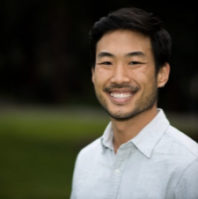 Seigi Karasaki, American Youth Leadership China Program Assistant Director and VIA China 2012 Fellow
Seigi Karasaki, American Youth Leadership China Program Assistant Director and VIA China 2012 Fellow
Seigi’s primary research interests include the political economy of drinking water access and distributive justice vis-a-vis natural resources. He holds a BA in East Asian Studies from UCLA (2011) and an MA in International Studies from the University of Tokyo (2013). In the past, Seigi was: a TEDx organizer in Japan; a graduate intern in the Energy Security and Water Resources division at the United Nations Economic and Social Commission for Asia and the Pacific (UNESCAP); a consultant for the International Labour Organization (ILO), where he worked on a project examining post-disaster (Fukushima) employment and market recovery; and a conservation analyst for the Breakthrough Institute in Oakland, California.
